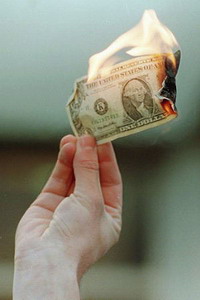WTO accuses Japan of violating international business rules
A World Trade Organization blamed Japan for violation of international trade rules in how it applies punitive damages on South Korean computer chip exports.

The overall decision was mixed, however, with Korean diplomats declaring themselves "not dissatisfied" and Japanese officials saying they were "pleased" by some of the findings.
The sensitive dispute concerns a 27.2 percent charge Tokyo levies on imports of DRAM, or dynamic random access memory, chips made by South Korea's Hynix Semiconductor Inc.
The chips are widely used in personal computers and are Hynix's mainstay product.
Seoul claimed victory after an initial WTO ruling in July, even though the panel refused to order Tokyo to scrap the fees outright. Japan accuses Hynix of benefiting from subsidies to sell the chips at below-cost prices, causing harm to Japanese chipmakers.
The WTO's top court told Japan on Wednesday to bring the fees into compliance with global commerce agreements. But the 102-page decision also rejected some earlier findings that went against Tokyo.
"It's a very mixed result," Japanese trade negotiator Koji Saito said. "We are pleased that some of the previous findings were reversed. Obviously, there's other findings that (conclude) Japan's measures are inconsistent."
Jae-kown Kang, an official with Korea's WTO mission in Geneva, said, "We are not dissatisfied with the ruling." He declined to comment further because the government in Seoul was planning to make an announcement soon.
South Korea has argued that the duties are discriminatory and the WTO appeals body backed its claims that Japan wrongly concluded that Hynix gained an unfair advantage through certain government payments. On other payments, the WTO has chided Japan for wrongly calculated the benefit Hynix enjoyed.
While the WTO has yet to order Japan to eliminate the fees, the two rulings imply that Tokyo will at least have to recalculate the duty it introduced in January 2006
Hynix's chips and the alleged subsidies paid by South Korea have also caused disputes with the United States and the European Union. Hynix, which nearly collapsed under mountains of debt several years ago, was twice saved - in October 2001 and December 2002 - by its creditor banks, which were majority-owned by the government.
In 2003, the U.S. levied a duty of 44.7 percent and the European Union slapped a 34.8 percent tariff on the chips, alleging that government-affiliated banks had subsidized Hynix's production via low-interest loans.
The WTO ruled in 2005 that some of Seoul's financial support for Hynix was illegal, citing restructuring loans and debt-for-equity swaps made by state-controlled banks. The global trade body upheld the duties imposed by the U.S., but ruled that the EU should reconsider its tariffs as it had incorrectly calculated the material injury caused to its own producers by the subsidies.
Brussels said in March 2006 that it was reviewing the duties because there was enough evidence to show that South Korean subsidies to Hynix had changed significantly.
Japan's tariff, which applies to DRAM chips manufactured in South Korea until 2011, was the first imposed by Tokyo to counter alleged subsidies by a foreign government. It was also the first punitive duty levied by Tokyo on a high-tech product.
Subscribe to Pravda.Ru Telegram channel, Facebook, RSS!




